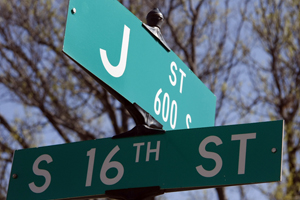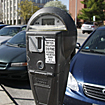Buying a car
There are two options when buying a car: New or used, and both require some work.
Natural-born Americans can feel overwhelmed and intimidated by the process. It is understandably stressful to make such a large purchase, especially when so much of the process can be confusing. So, before stepping onto a car sales lot, it’s best to have prepared for the process as well as possible.
A good starting place for first-time car buyers is Edmonds.com which has a great deal of resources including guides that help determine which kind of car and even how to negotiate a better deal.
The benefit to buying new cars is that they are generally covered under a warranty: If something goes wrong within a certain amount of time, the dealer or maker will fix the problem for free. And because there are no previous owners of a new car, there is no worry about the maintenance record. The big downsides to a new car, however, are they are generally much more expensive and quickly lose a lot of value once they are purchased.
According to Edmonds.com, a new car loses 11 percent of its value the moment you drive it off the lot, on average. After five years, a new car is worth an average 63 percent less than what you paid the dealer. This loss in value is called "depreciation."
Used cars are often much cheaper, maintain more value of the purchase price, and can be just as good as a brand new car. Unfortunately, there is risk when buying a used car. Used cars are almost always sold “as is,” which means any problems after the purchase are your problem. And sometimes it’s difficult to tell if a used car has been in a serious accident or has major mechanical problems which can create serious financial problems after the purchase.
But there are things you can do to make sure you get the best deal and the best car you can.
Clark Howard, a nationally respected consumer advocate, has laid out several useful tips for car buyers.
- Secure financing before going to the dealer.
- Research at least two different cars that interest you, learning the price, reliability, and insurance costs.
- Learn what the dealer paid for the car, or the "invoice price." This information can be found by researching specific car models on Edmonds.com, and will be useful during negotiations.
- Have a used car inspected by a mechanic before purchase. Most repair shops will do this for a fee, but it will be worth the investment if it saves you from buying a car with a serious mechanical problem.
- Use a service called CarFax to learn a used car’s accident history.
More tips on buying a new car.
More tips on buying a used car.
Lincoln Streets

Not all cities are the same, but roads in Lincoln are primarily laid out in a grid pattern. Knowing the basics of the system can help in finding your way around town and...READ MORE
Driver’s License/Car Registration
Getting a driver’s license and registering a car is a necessary process that most people dislike. It ensures a minimum competence level of all drivers and collects the taxes and fees that help maintain the nearly 10,000 miles of roads that criss-cross Nebraska.
Even people born and raised in the United State have...READ MORE
Automobiles
There are few taxi cabs in the city, and what there is for taxi service is generally considered unreliable and overpriced. A two-mile ride in a Lincoln taxis will cost about $13, but a two-mile ride in Omaha is about $8. And according to taxifarefinder.com, a cab ride in Lincoln is more expensive than in major cities like New York, Philadelphia, Chicago, Miami, and Washington D.C., to name a few.
Lincoln’s best option for public transportation is StarTran, the city bus system. Regular rates are affordable, and there are also low-income options. StarTran also provides services for the disabled. Check this video for a detailed look at how to take advantage of the StarTran system.
Parking

Finding a parking spot is not a large problem in Lincoln. Even in downtown, parking is usually available, although for a price. So, if you’re heading to a downtown location, make sure you have a few dollars in spare change.
Metered street parking downtown costs about $.25 for half-an-hour, and is usually limited to two hours ($1) or less.
Parking garages are also available downtown. Some garages might charge as much as $1 per hour, or $4-6 for all day.
Leaving Lincoln
Longer journeys will likely begin at the Lincoln Amtrak train station, Greyhound Bus Depot or Lincoln airport.
Go here for more on leaving Lincoln.
